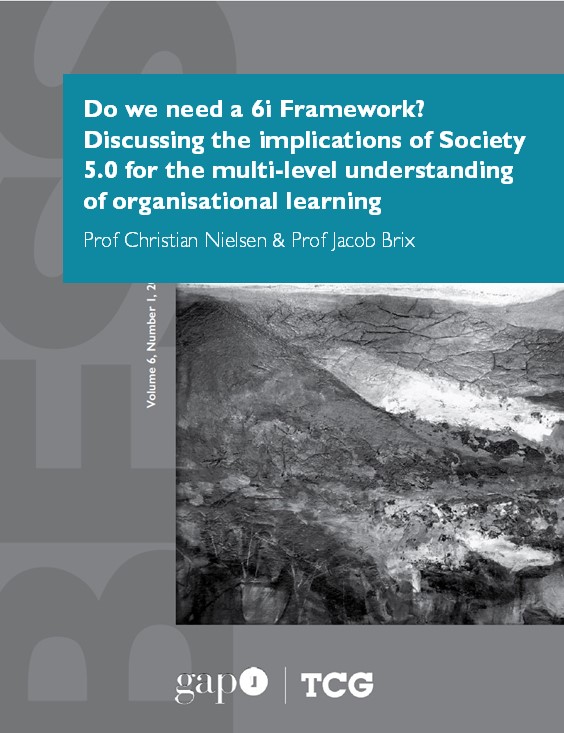Do we need a 6i Framework? Discussing the implications of Society 5.0 for the multi-level understanding of organisational learning
DOI:
https://doi.org/10.54337/ojs.bess.v6i1.8722Palavras-chave:
Organizational Learning: 4i Framework; Inter-Organisational Learning; Multi-Level Models; Society 5.0Resumo
Purpose: Society 5.0 is attracting attention as a new societal paradigm boasting a human-centric approach to innovation and development. The logic is that many decades of priority on technological innovation and less on social innovation have created grand challenges for societal, social, and ecological perspectives. This paper discusses how a city, a region, or a group of organisations can initiate and elaborate a collaboration built on the premises of Society 5.0, and what would be important for them to consider regarding the collaboration.
Design/methodology/approach: The paper is conceptual. Therefore, we approach our research as a discussion of how and why theory on inter-organisational learning would need additional analysis if the political ambition of Society 5.0 is to be realised in practice. To enable this discussion, we utilise inter-organisational and multi-level learning theories as theoretical backgrounds, specifically, the 4i and 5i frameworks.
Findings: Our conceptual discussion adds a new learning level to the existing literature: ‘extra-organisational learning’. This new level is recognised by a new sub-process – a new i – which stands for ‘inspiring’. This implies that Society 5.0 would require a move towards a 6i framework in the theory of organisational learning to achieve its full value-creation potential.
Originality: To our knowledge, we are the first to suggest a new level of learning to the multi-level strand of literature in organisational learning: the 6i framework

Downloads
Publicado
Edição
Secção
Licença
Direitos de Autor (c) 2024 Prof Christian Nielsen, Prof Jacob Brix

Este trabalho encontra-se publicado com aLicença Internacional Creative Commons Atribuição-NãoComercial-SemDerivações 3.0.
This journal provides immediate open access to its content on the principle that making research freely available to the public supports a greater global exchange of knowledge.
Articles published in BESS follow the license Creative Commons Attribution-NonCommercial-NoDerivs 3.0 Unported (CC BY-NC-ND 3.0)
Authors retain copyright and grant the journal right of first publication with the work simultaneously licensed under a Creative Commons Attribution License: Attribution - NonCommercial - NoDerivs (by-nc-nd).
Further information about Creative Commons




